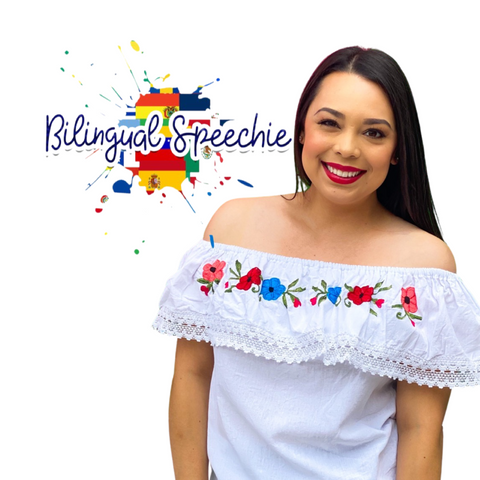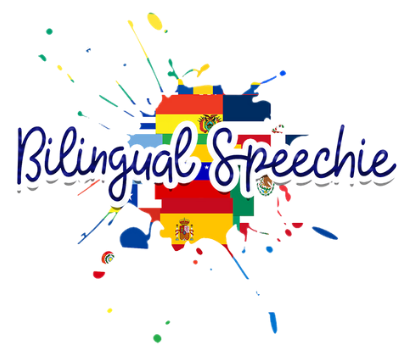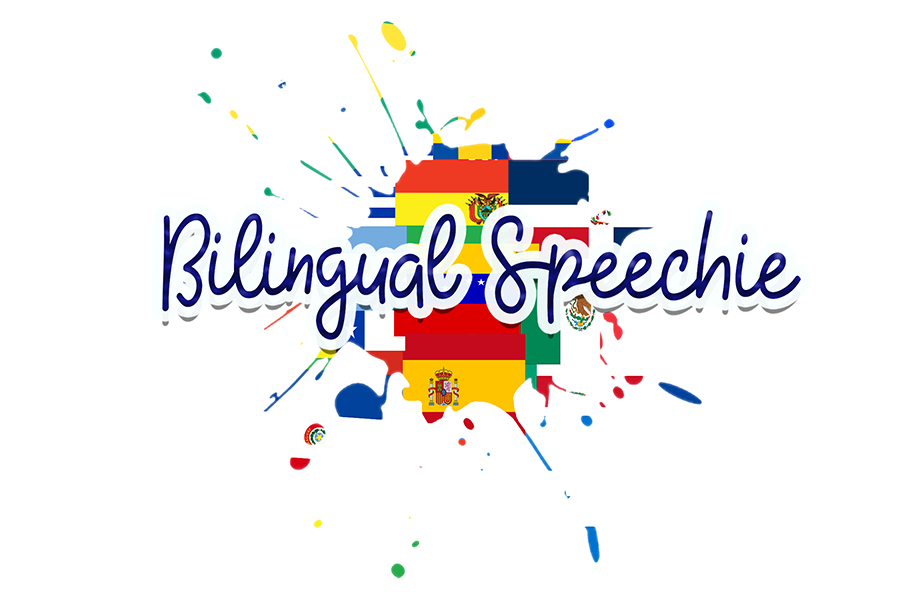by Liliana Diaz February 25, 2021 3 Comments
We already know that bilingualism is not static and it exists on a continuum in which one's proficiency is constantly changing over time. In some cases, bilingual people might be more dominant in one language when compared to the other (this is perfectly normal). As speech language pathologists, we need to be able to determine exactly where our bilingual student falls on the bilingual continuum by measuring the his/her language dominance in both languages. Why is this important and how do we do this you may ask? I will answer your questions down below:
The Importance of Measuring Language Experience & Dominance
How do I Measure a Bilingual Student's Language Experience & Dominance in Both Languages?
The best way to measure a bilingual student's language experience and dominance in both languages is by collecting an in-depth language history. The language history will allow you to gain an understanding of the student's use and exposure of both languages. You can obtain an exact percentage of the student's language use and exposure in both languages by determining who the child lives with, their relationship to the child, the languages spoken and heard by the child each hour of the day. Once you have all the information over a week's span, you can calculate the average percentage of use and exposure of both languages. There is an exact formula that you can follow to obtain the percentages. I created a visual chart, formula document with step-by-step instructions and data organization chart which is available for free download in the freebie library (click here for formula and chart). It will walk you through exactly through the formula. Once you have this information, you will be able to see exactly where your student falls on the continuum and mention it in your report.
Based on the information, you should be able to figure out whether your student is a functional monolingual English (FME), functional monolingual other (FMO), bilingual English Dominant (BED), balanced bilingual (BL), bilingual other dominant (BOD), or functional monolingual other (FMO). Remember, a bilingual evaluation is always needed for BED, BL, and BOD students. So where do your students fall on the continuum?
December 13, 2023
HI! Is this resource still available?
November 04, 2022
Hi Elizabeth,
I will send you an email directly. However, ensure that you are calculating the time from the moment the student wakes up to the moment the student goes to bed. For example, the student’s day might look like from 7AM to 8PM.
November 04, 2022
Hi,
So I’m trying to do the math and maybe I’m doing something wrong. 80% of 168 comes out to 134.4 hours. So if I’m understanding right, they have to speak (or hear) a language 134.4 hours or 19.2 hrs out of each day to be FME or FMO. Where is sleep in this? Who talks for that many hours? Is this hours that they “may” talk or have the opportunity to talk because I don’t know anyone who talks for 19 hrs. This seems an impossible standard to meet and everyone would fall in the needing bilingual evaluation category. Do you add the hours for talking and hearing together then divide it? Please help.
Comments will be approved before showing up.
by Liliana Diaz December 14, 2023
by Liliana Diaz July 23, 2023
Have a client on your caseload that is demonstrating difficulty producing the CH sound? Perhaps you're a parent whose child is in speech therapy working on the CH sound? The CH sound can be a tricky sound to teach because it's hard to visually see what's going on inside the mouth when saying the sound. But no worries, here are some tips to help achieve that tricky CH sound.
by Liliana Diaz February 13, 2023 1 Comment

Who are we?
Bilingual Speechie LLC. is a small business dedicated to providing inclusive and engaging speech therapy resources and activities for bilingual children, parents, SLPs and educators.
Bilingual Speechie LLC promotes bilingualism and multilingualism by dispelling common myths, providing education on bilingual language development, and promoting heritage language maintenance amongst bilingual families.
About the Owner:
Liliana Diaz-Vazquez is a certified licensed bilingual speech language pathologist (SLP), currently practicing in Chicago, Illinois. She obtained her bachelor’s degree in communication disorders (2012) and her master’s degree in speech language pathology at Saint Xavier University (2014). She is a certified member of the American Speech-Language and Hearing Association (ASHA) since 2014, a member of the Illinois Speech and Hearing Association (ISHA) since 2014 and maintains licensure in the state of Illinois.
Liliana is a first-generation Mexican-American Latina, a small business owner, a full-time school-based SLP, & a bilingual parent, who takes pride in her roots, culture, & heritage language. She loves being able to share her experience as a Latina SLP, and a bilingual mom, as well as her culture & heritage language with the educator, SLP, and parent community.
Liliana Diaz-Vazquez has extensive experience working with the bilingual English and Spanish speaking population & multilingual population. She specializes in augmentative/alternative communication (AAC), bilingual language development and language delays/disorders in bilingual/multilingual children. She has also worked in the early intervention setting for several years where she gained vast experience working with interpreters and bilingual/multilingual families.
Liliana began creating digital bilingual resources and activities in 2014 out of need while working full-time in the school setting as a SLP. Liliana worked with many Spanish-speaking families and quickly realized that there were limited Spanish and bilingual speech therapy resources available for her students and their families. In addition, Liliana quickly became aware that there was a need for education about bilingualism and typical bilingual language development as many of the families she worked with had encountered misinformation about bilingualism. Liliana began developing resources and eventually started Bilingual Speechie LLC with the mission to provide education to SLPs and families about bilingualism, as well as provide inclusive and diverse materials for speech therapy in order to help bilingual families and SLPs gain access to appropriate bilingual materials for children with communication disorders.
Today Liliana currently works full-time in the Chicago public school setting as a lead bilingual SLP where she consults and collaborates with SLPs daily to help them understand how to assess and provide culturally and linguistically appropriate services for bilingual and/or multilingual students. She also runs her small business, Bilingual Speechie LLC, and is on a mission to expand and grow her business so that all SLPs, educators, and families can have access to inclusive, diverse, and bilingual resources in a variety of languages for speech therapy.
Professional Development:
Liliana has vast experience as a speaker/presenter and has presented at several conferences over the years. You can view all previous conferences and topics that Liliana has presented on here. Liliana is available to present on topics such as best practices when working with multilingual populations, bilingual speech/language assessment and treatment, goal writing with multilingual populations and much more. If you are interested in booking Liliana for a conference or event please don't hesitate to send an email at lilianadiaz@bilingualspeechie.com
 English
en
English
en
 English
en
English
en


Liliana Diaz
Author